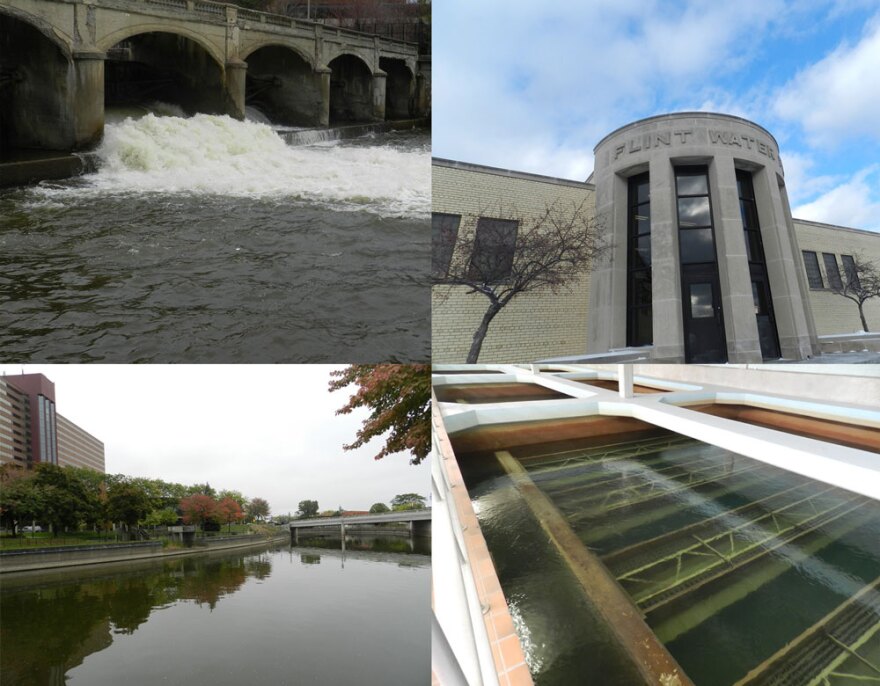It's still not safe to drink the tap water in Flint.
The Environmental Protection Agency recently announced it's stepping in to test water, along with the state.
Mark Durno is the on-scene coordinator for the EPA. He says the Michigan Department of Environmental Quality is still in charge of testing for lead in water samples from people’s homes. Durno says the EPA is then going into the homes with very high lead levels (greater than 150 ppb) to find out what’s going on.
The DEQ did not require Flint to treat its water to prevent lead from leaching from old pipes and faucets.
“One of the things we believe is happening within the water system, is when the pipes were corroding, the corrosion breaks off into flakes or scale and that scale then floats through the system and comes out the tap. And even a small piece of that scale can create a high lead level,” he says.
He says they’re testing water filters in those homes to see if they still work at those high lead levels. Last Friday evening, state and federal officials warned people in Flint that water filters are only certified to screen out lead at levels up to 150 ppb. That same evening, Governor Snyder urged all Flint residents to get their water tested.
Officials said pregnant women and children under six should drink only bottled water until their water tests come back below 150 ppb, and then they should only drink tap water if it's filtered through a NSF-certified, lead removal filter.
"When the pipes were corroding, the corrosion breaks off into flakes or scale and that scale then floats through the system and comes out the tap. And even a small piece of that scale can create a high lead level."
Durno says the EPA is running extra tests at homes with levels of lead in water above 150 ppb.
"We want to ensure that anybody that's using those water filters can get some additional sampling to just ensure that at higher lead levels those filters are effective," Durno says. "All of our experts are telling us those filters are likely effective at higher concentrations of lead. But we want to challenge them with the actual water that residents are drinking."
Durno says they expect to have preliminary data within the next few days.
He says EPA is planning to do diagnostic testing in Flint to figure out whether lead is in fixtures, solder in pipes, or in service lines leading to individual homes.
The data
Since January, the state has tested 4,918 residential water samples. Officials say the vast majority are below the federal action level for lead in water (15 ppb).
313 samples came in too high: over 15 ppb.
43 samples measured above 150 ppb.
The highest lead level in water measured in January was 6,290 ppb. That's above the level EPA considers to be toxic waste (5,000 ppb).
Advice for Flint residents
Late last night, the EPA put out a press release with more advice for people in Flint. Here's what it said:
The U.S. Environmental Protection Agency is reminding Flint residents to take steps to remove debris that may have accumulated in faucet aerators, hot water heaters, and whole-house water filtration systems. When water flows from the distribution system to your tap, many factors in the system and household plumbing can affect your water quality. EPA is recommending that homeowners take the following steps to reduce any potential lead contamination that may be present in the drinking water system: • Residents should clean out their faucet aerators by unscrewing the aerator at the tip of the faucet, and removing any debris that has collected there. Aerators are located at the tip of household faucets and have a screen to collect particles and sediment. Until the system has recovered, EPA recommends that Flint residents clean aerators once a week. • Flush hot water tanks to remove sediments that may have been deposited into the tank. • Clean whole-house water filtration systems by flushing the system and changing the cartridge. • Pregnant women and children under six should drink bottled water until they get results showing their water is below 150 parts per billion. After that point, they should only drink water that has been through an NSF-certified, lead removal filter. • Residents are encouraged to have their water tested to be sure lead levels are below 150 parts per billion. You can do this for free by calling the City of Flint Water Plant at 810-787-6537 or emailing flintwater@cityofflint.com. As EPA learns new information during the course of this response, Flint residents can go to www.epa.gov/flint to find all of EPA’s advice, information, and data. Residents may contact the newly established hotline or email address for information about EPA’s water sampling efforts. The hotline will provide immediate, telephonic translation in multiple languages. You can call EPA’s toll-free hotline at 800-426-4791, or email us at flintwater@epa.gov to get answers to questions regarding EPA’s response.






